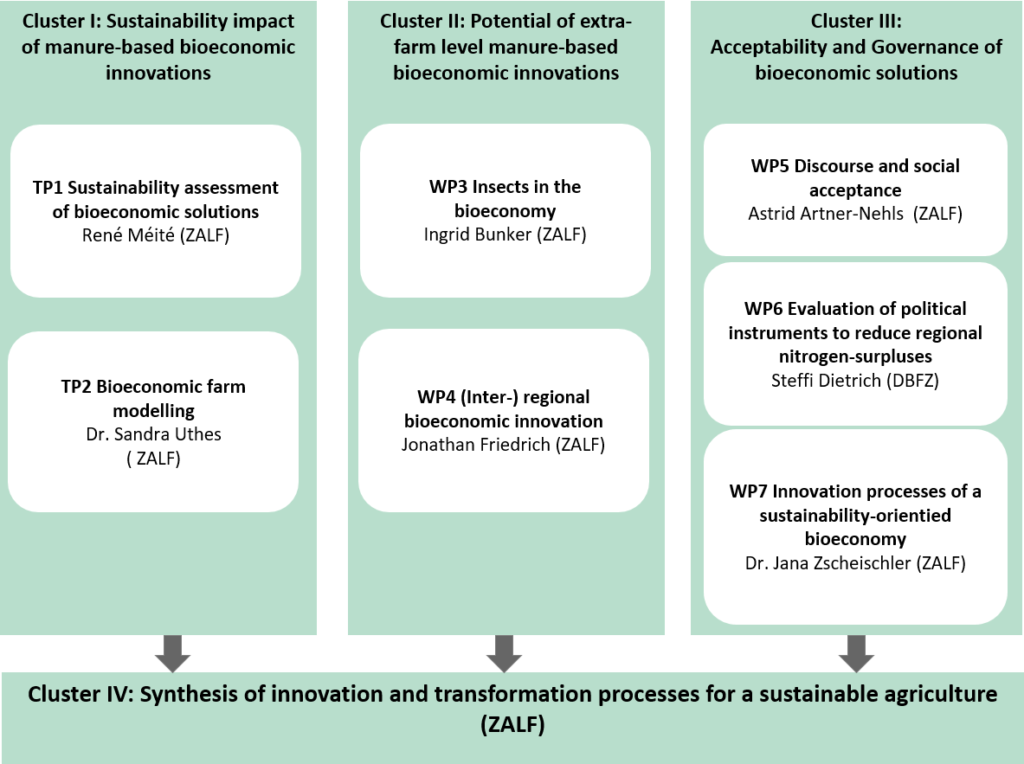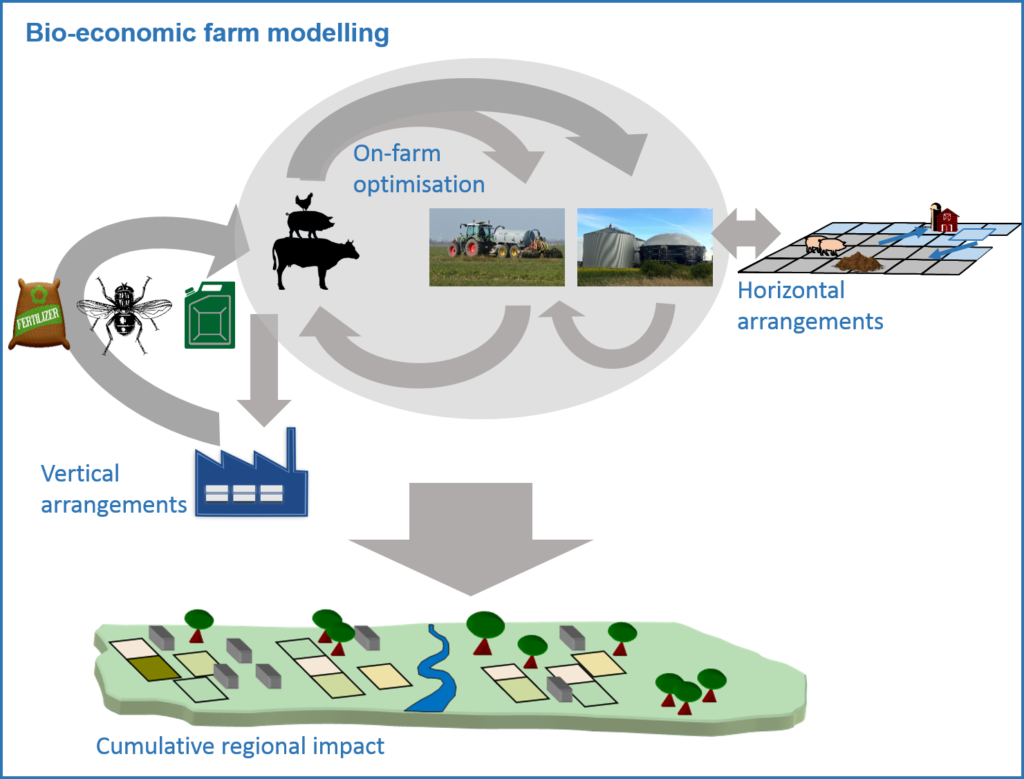Objectives
Closing nutrient loops in agriculture is an important challenge. Despite the existence of fertiliser regulations for more than 20 years, agriculture in many western economies is characterised by high nutrient surpluses, particularly in livestock-intensive regions.
Bioeconomic innovations at intra-, inter- and extra-farm level including altered manure storage and application techniques, contractual agreements between crop and livestock farmers, or the conversion of manure and biogas residues into recycling fertilisers, fuels and proteins can contribute to a solution strategy.
Our core focus in BioKum is on the cumulative impact and transformation potential of such manure-related bioeconomic innovations for the agricultural sector.

Data source: Uwe Häußermann/ Martin Bach, University Gießen
Research Questions:
(1) What sustainability effects do intra- and inter-farm-level manure-based bioeconomic solutions have individually and cumulatively as well as on different scale levels (farm, region)?
(2) What potential do extra-farm manure-based bioeconomic solutions have? Which barriers arise along the value chains involved and how can they be removed?
(3) What role do discourse, political instruments, knowledge relationships and other factors influencing acceptance play? How can the change to more sustainable practices be supported and innovation processes controlled for a sustainability-oriented bioeconomy?
(4) How can the transformation to a more sustainable agriculture be achieved through various bioeconomic solutions?
Goal: Evidence- and model-based, integrative synthesis
Work packages

Methodical and conceptual approaches
BioKum pursues an integrated inter- and transdisciplinary approach. The junior research group links and integrates bioeconomic modeling at farm level (agricultural economics) with methods of transformative sustainability research and environmental sociology as well as with regional economic, innovation and political science approaches.

